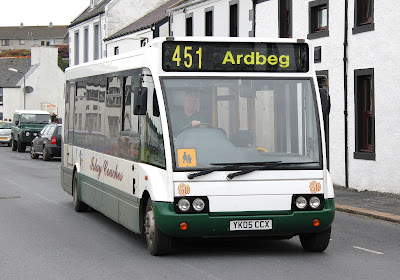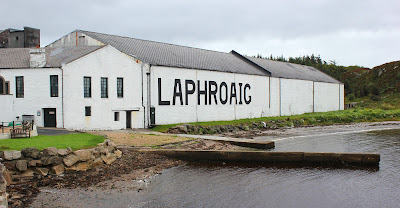On the 15th of
October 2012, the Edinburgh Agreement between the United Kingdom Government and
Scottish Government on a referendum on independence for Scotland was signed. The
political process continues, and before the end of 2014, the electorate (with a
lowered voting age from 18 to 16) gets to give a ‘yes’ or ‘no’ vote to the
question ‘Should Scotland be an independent country?’. What, then, are the
implications of a possible Scottish independence for Scotch whisky?
Scotch whisky is Scotland’s
leading single product export, and the UK’s largest FMCG export. Diageo, the
biggest player on the field, is investing £ 1.000.000.000 in Scotch whisky
production over the next five years. According to BBC, the company’s CEO Paul
Walsh has stated that Scottish independence would make no difference to any
decision on investing in the country, and that such moves are only made for
economic reasons. Walsh also stated that Diageo has a very good relationship
with both Holyrood and Westminster, and that he doesn’t think the debate over
independence is one Diageo wishes to get into.
A similarly neutral line is
taken by The Scotch Whisky Association in its written evidence to the UK
Parliament on the foreign policy implications of and for a separate Scotland.
The SWA takes no official position on constitutional arrangements within the
UK. However, it could be argued that in its written evidence and in its
response to the UK and Scottish Governments’ consultations, worries over
changing the devolution-based status quo are visible at least beneath the
surface.
The SWA points out that the
Scotch whisky industry is a major business in the UK, embedded in Scotland,
providing employment for around 35.000 people, and contributing massively to
the prosperity of the United Kingdom and Scotland. It is also an
export-oriented industry, selling nine out of every ten bottles overseas. This
leads to various international priorities, which the SWA says are pursued with
and through the UK Government whose influence with the European Union
institutions ensures that they are handled to the best effect. The existing and
apparently very well-working UK framework is analysed with seven paragraphs,
whereas the Scottish framework gets only one, its main content seeming to be
that the SWA aims to keep the Scottish Government and public agencies updated
on industry trade policy priorities.
In late January 2012,
British Foreign Secretary William Hague reportedly said in a private meeting
that Scotch whisky would be hit by a Foreign Office ban if Scotland breaks away
from the UK. According to Hague, Britain’s 140 embassies and high commissions
promote whisky for free, but if Scotland becomes independent, Edinburgh would
have to take over the job and pay for it. While it might be thought that Hague
was merely stating the obvious, with some rhetoric added for dramatic effect, the
possibility of diminished promotional resources on an international level seems
like a legitimate cause for worry for any export-oriented industry.
The SWA has just held (from
29 November 2012 to 25 January 2013) a ‘From Grain to Glass’ exhibition at the
Scottish Parliament to celebrate the Association’s first century. However, the
feeling of uncertainty at the prospect of independency with Holyrood might be
somewhat intensified by the ongoing disagreement over the principle of minimum
alcohol unit pricing between the Scottish Government and the SWA. The latter
opposes minimum pricing as damaging to the industry, and has also proceeded to
question its legality. The Scottish Government’s expressed aim, on the other
hand, is to reduce alcohol harm factors related with health, crime, social
care, productive capacity, and wider social costs.
Wherever the constitutional
destiny of Scotland may lie at the hands of the electorate in 2014, interested
observers may only urge and hope that the political and industrial parties
involved possess enough wisdom to steer a sustainable course that continues to
take good care of Scotland’s valuable whisky tradition in a way which is also
socially responsible.
























.JPG)